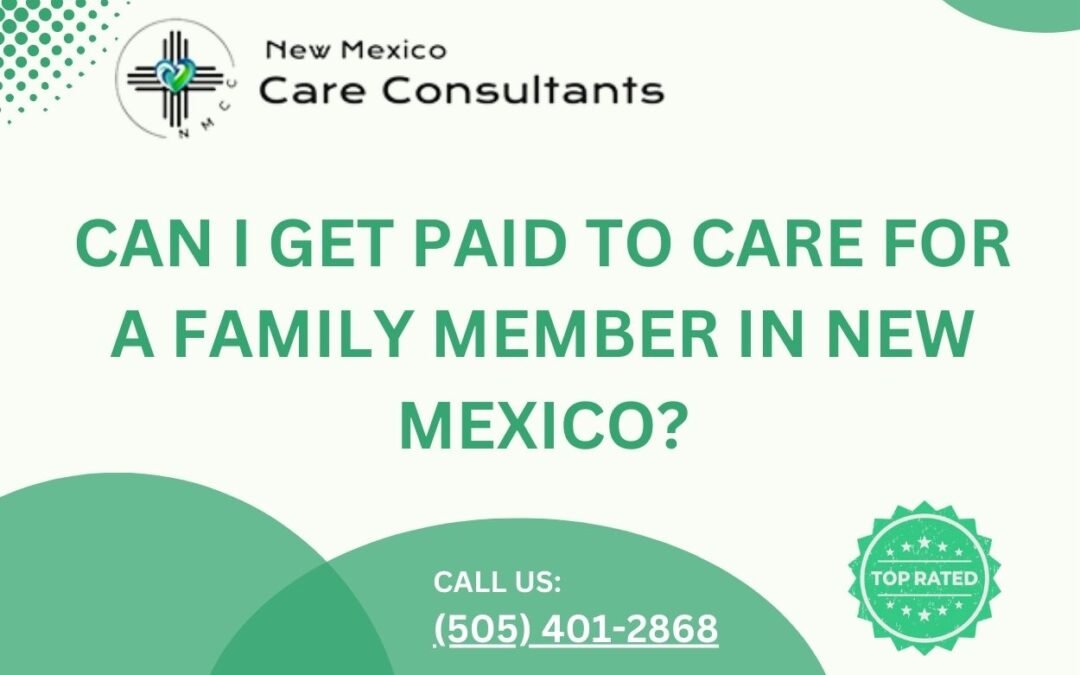As of my last knowledge update in January 2023, New Mexico, like many states, has programs that allow family members to receive compensation for providing care to their loved ones through certain Medicaid programs. These programs recognize the value of family caregiving and aim to support both the caregiver and the care recipient. Keep in mind that policies and programs can change, so it’s advisable to check with the relevant authorities or seek legal advice for the most up-to-date information. Here’s an overview of the potential avenues for getting paid to care for a family member in New Mexico:
- Medicaid’s Consumer-Directed Care Program: Medicaid in New Mexico offers a Consumer-Directed Care (CDC) program that allows Medicaid recipients to choose their caregivers, and in some cases, this can include family members. Under this program, the care recipient, often an elderly or disabled individual, becomes the employer of the caregiver. The caregiver, who is often a family member, is then compensated for the care provided.The compensation is typically determined based on the number of hours of care needed and the Medicaid-approved hourly rate for caregiver services. The care recipient and the caregiver must adhere to program guidelines, and the caregiver may need to meet certain eligibility criteria.
- Medicaid’s Personal Care Option: New Mexico’s Medicaid program also offers a Personal Care Option, which allows eligible individuals to receive personal care services at home, and this can include care provided by a family member. This option is designed to help individuals with activities of daily living (ADLs) and instrumental activities of daily living (IADLs), such as bathing, dressing, and meal preparation.Similar to the CDC program, the compensation is based on the approved hourly rate for caregiver services. The care recipient works with the Medicaid program to determine the number of hours of care needed.
- Community Benefit Program: Some community organizations and non-profits in New Mexico may offer programs or benefits to support family caregivers. While these programs may not provide direct financial compensation, they may offer resources, respite care, or support services that can assist caregivers in their responsibilities.
- Veteran-Directed Care Program:If the care recipient is a veteran, they may be eligible for the Veteran-Directed Care program through the U.S. Department of Veterans Affairs (VA). This program allows veterans to manage their long-term services and supports, including selecting and hiring their caregivers, which can include family members.Compensation for caregiving under this program is based on the VA-approved hourly rate. The caregiver, whether a family member or someone else, receives payment for the caregiving services provided.
Steps to Get Paid for Family Caregiving in New Mexico:
- Determine Eligibility:Confirm whether the care recipient is eligible for Medicaid or other relevant programs that support family caregiving.
- Program Selection:Choose the appropriate Medicaid program, such as Consumer-Directed Care or the Personal Care Option, based on the care recipient’s needs and eligibility.
- Complete Necessary Paperwork:Complete all required paperwork, including Medicaid applications and any forms specific to the chosen program.
- Care Assessment:Work with Medicaid or relevant agencies to assess the care recipient’s needs and determine the number of hours of care required.
- Caregiver Agreement:If approved, formalize the caregiver arrangement with a written agreement that outlines the tasks to be performed, the schedule, and the compensation.
- Regular Reporting:Comply with reporting requirements, which may include submitting timesheets or documentation of care provided.
Considerations and Challenges:
- Medicaid Eligibility: Not everyone may be eligible for Medicaid, and the care recipient must meet the program’s criteria.
- Hourly Rates: Compensation is typically based on hourly rates determined by Medicaid, which may vary.
- Documentation: Caregivers may need to maintain accurate records of the care provided to ensure proper compensation.
- Program Changes: Policies and program details can change, so it’s essential to stay informed about any updates or modifications.
- Legal and Tax Implications: Consultation with legal and financial professionals is advisable to understand potential legal and tax implications of receiving compensation for caregiving.
Conclusion:
Getting paid to care for a family member in New Mexico is possible through Medicaid programs that recognize the crucial role of family caregivers. Understanding the available programs, eligibility criteria, and necessary steps is key to navigating this process. While compensation may not fully replace the emotional and time commitments of caregiving, it can provide valuable support to those dedicating themselves to the well-being of their loved ones. It’s recommended to reach out to relevant Medicaid offices or seek legal advice for the most accurate and up-to-date information based on current policies and regulations.

